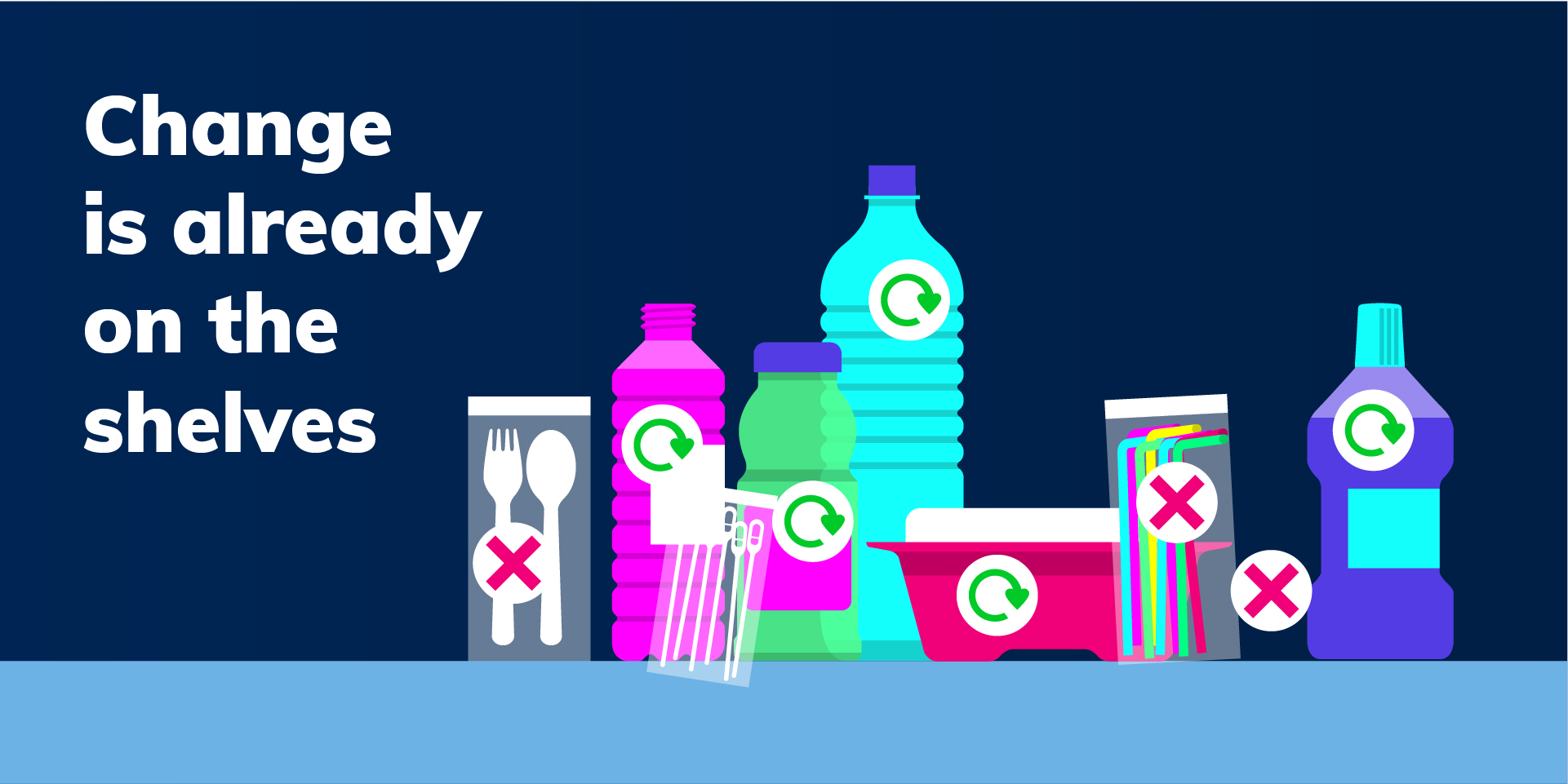
Reducing or replacing plastics hinges on a number of key factors:
- If the same functional benefits can be maintained (e.g. prolonging shelf life, protection of goods in transit, waterproof)
- If the new material is less impactful to the environment
- If the material can be sourced in large enough quantities
- If the material costs roughly the same (if not, the cost is usually passed on to the consumer).
The overuse of plastic is a massive global issue that requires immediate action. But because of the complex and challenging nature of the problem, change can’t happen overnight. The good news is that the transformation of the way we make, use and dispose of plastics is already underway.
And it’s working. Since 2018, supermarkets have removed the equivalent weight of 272 London buses of fresh produce packaging. They’ve also replaced 1.5 billion un-recyclable black plastic ready-meal trays with recyclable alternatives – that’s roughly 23 trays per person in the UK.
The UK Plastics Pact
The UK Plastic Pact is an initiative that brings together businesses, governments, NGOs and citizens to tackle the issue of plastic waste.
The UK Plastics Pact 2018/19 report shows that:
- 1 billion unnecessary single use plastic items will be eliminated by the end of 2020
- Pact members are over halfway towards all their packaging being recyclable, and the UK itself is more than halfway towards recycling 70% of all plastic packaging
- Members of the Pact are a third of the way towards an average of 30% recycled content in their plastic packaging
- Highly complex challenges still remain, such as developing a recycling system for films and more flexible packaging.
Future improvements
Through new government policy:
- Plastic producers will be forced to foot the bill for the packaging they produce
- Working towards every household in England being able to recycle the same set of materials
- A clearer labelling system will make recycling easier and clearer.
The UK Government’s Resources and Waste Strategy Department has also made several proposals that include:
- A deposit return scheme for plastic bottles
- Plastic producers will be made to pay a tax on plastic packaging that doesn’t contain recycled plastic.
How this will be implemented is still under consultation and it may take a few years to come into effect. Complex policy changes take time to prepare and implement properly.
In the meantime, everyone must continue to work across the plastics supply chain to combat plastic pollution.

